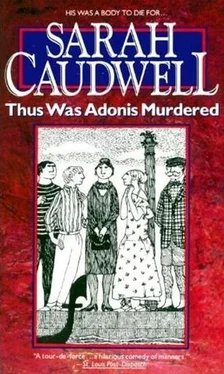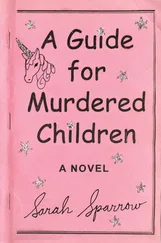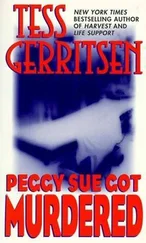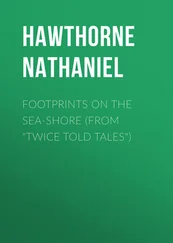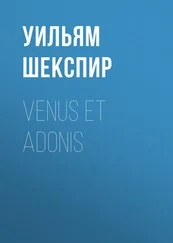“It is an obligation,” he answered with great coldness, “that I shall be quite happy to forget.”
From which I concluded that he is still set on proving himself not to be a young man of easy virtue and that it would accordingly take a full week of admiring his soul to prevail on him again.
In case I have anything to add, I shall not post this until tomorrow evening; though I do not suppose, since tomorrow is our last day in Venice, that anything will happen of sufficient interest to deserve reporting to you.
“The remainder of the letter,” said Selena, “is written, therefore, on the day of the murder. Would this be a convenient moment to adjourn for coffee?”
Cantrip appeared thoughtful: he had conceded without even formal argument that it was his turn to buy the coffee.
“I say,” he said, as he brought it back to our table, “you know this bird Desdemona that Julia keeps on about? She married this chap Othello and he got the idea she was having a bit on the side. So he did her in.”
“I think,” said Selena, “that we are all reasonably familiar with the unfortunate events described in the tragedy of Othello.”
“Well, I’m jolly familiar with them,” said Cantrip, “because Julia took me to see it once. And I said afterwards I thought it was pretty silly, because the Othello chap’s meant to have done frightfully well in the army and be a wiz at strategy and all that. And in that case, he wouldn’t be the sort of twit who thought his wife was having it off with someone else just because she lost her handkerchief. And Julia didn’t agree. Well, what she actually said was that I was a semi-educated flibbertigibbet whose powers of dramatic appreciation would be strained to the utmost by a Punch and Judy show on Brighton Pier in the off season. So I biffed her with my umbrella. And she tried to biff me with her handbag. But she missed, of course — you know what she’s like.”
Evidently lost in the tenderness of this recollection, Cantrip fell silent. The sweep of black hair across his pale forehead gave him a romantic look, as of some poet or artist dying young in the nineteenth century. The events described had taken place, I suppose, before the spider episode: after it Julia would not, I think, have sought to return his biff.
“Did this literary discussion,” asked Selena, “at any stage return to the merely verbal?”
“Oh, rather,” said Cantrip. “You see, the way Julia saw it was that a chap who’d spent all his life in the army was just the sort of chap to get a bee in his bonnet about pure womanhood and so on, because he wouldn’t get the chance to find out that women were more or less like anyone else and he’d start getting all idealistic about them. So as soon as he found out Desdemona wasn’t perfect — I mean, the first time she spilt coffee or dropped cigarette ash on the carpet — he’d start feeling all disillusioned and thinking she’d betrayed his ideals. And after that, making him think she was having it off with some other chap would be absolute child’s play.”
“It is, I suppose,” said Ragwort, “a not unconvincing view.”
“You bet it’s not unconvincing. Because when I started thinking about it I realized it was just what happened to my Uncle Hereward. My Uncle Hereward spent the best years of his life in the Army, serving Queen and Country in distant outposts of Empire, and when he came out he was so far round the twist he was practically invisible. With special reference to women. He’s got this idea that when he went into the Army women were all pure and unattainable and when he came out they weren’t. And instead of being pleased, he’s as miffed as a maggot about it.”
“My dear Cantrip,” said Selena, “are the psychological difficulties of your relative in any way material to our present problem?”
“Well, of course they are, or I wouldn’t be telling you about them, would I? The point is that this Major of Julia’s is the same type as Othello and my Uncle Hereward. And Julia, poor grummit, with a view to discouraging his advances, has been setting herself up as a leading contender in the pure womanhood stakes. As a result of which, the Major thinks she’s the woman he’s been looking for all these years and asks her to marry him.”
“Oh, dear,” said Selena.
“‘Oh, dear’ is right. And since Julia doesn’t want to hurt his feelings by saying no, she wouldn’t marry him if he was the last man on earth, he probably thinks she’s more or less engaged to him.”
“No one,” said Selena, “could be as idiotic as that”
“You haven’t met my Uncle Hereward. Well, if that’s how the Major sees things, and then he finds out about Julia and the chap from the Revenue, with particular reference to last Wednesday afternoon, what’s he going to do about it?”
“I suppose,” said Ragwort, “taking Othello as his model, that he would have murdered Julia.”
“Ah,” said Cantrip, “that just shows you’re not as familiar with Othello as I am. If you’d been to the thing and sat all the way through it the way Julia made me do, you’d remember that before he did in Desdemona he took out a contract on this other chap he thought she’d been having it off with.”
“Cantrip is reminding us,” said Selena, fearing that our grasp of the Cambridge idiom might not be sufficient to enable us to follow this explanation, “that prior to strangling his wife Othello gave instructions to his subordinate for the murder of Michael Cassio, his supposed rival in her affections.”
“Right,” said Cantrip. “So if Julia wasn’t around, the Major would have done in the chap from the Revenue.”
“I do not recall,” said Ragwort, “that Othello completed his revenge by stealing Cassio’s holdall. One feels that the dramatist would have thought it something of an anticlimax.”
“Never mind about the holdall,” said Cantrip. “I expect it had incriminating evidence in it or something. Apart from that, the two cases are practically identical — even the handkerchief business.”
“I don’t suppose,” said Selena, “that the handkerchief which the Major gave Julia was woven by a two-hundred-year-old sibyl from the silk spun by sacred silkworms. If it had been, the Major, being a dealer in antiques and objects of virtue, would hardly have given it to Julia to stem a nosebleed. Shall I read the rest of her letter?”
Terrace of the Cytherea.
Friday morning.
I have a rather curious, possibly even sinister, incident to relate to you. One might call it, perhaps, the Phenomenon of the Recurring Mayor. Before coming to it, however, I should mention, by way of prelude, an episode which occurred at breakfast time.
I don’t know if you have ever noticed, Selena, how after a few months of doing without the pleasures of the flesh and being more or less resigned to it — of thinking, that is to say, that it would be nice if they were available but that since they are not one had better get on with construing the Taxes Acts — how, after such a period, an interruption of the celibate life tends rather to stimulate than allay the appetite. It is, I have found, the same with strawberries: during the winter I am not subject to any overpowering desire for them; but when I eat my first strawberry of the season and am reminded by direct experience of their warm yet un-cloying sweetness and their yielding firmness between one’s teeth, then I can by no means content myself with one, or two, or even three, but go on eating them with immoderate greed until the bowl is empty or forcibly taken from me.
Thus, when I woke this morning, I began to reflect on the unlikelihood of any further success with Ned, and on the prettiness of the waiter who brings my breakfast. The travel agents did say, after all, that service was included.
Читать дальше
